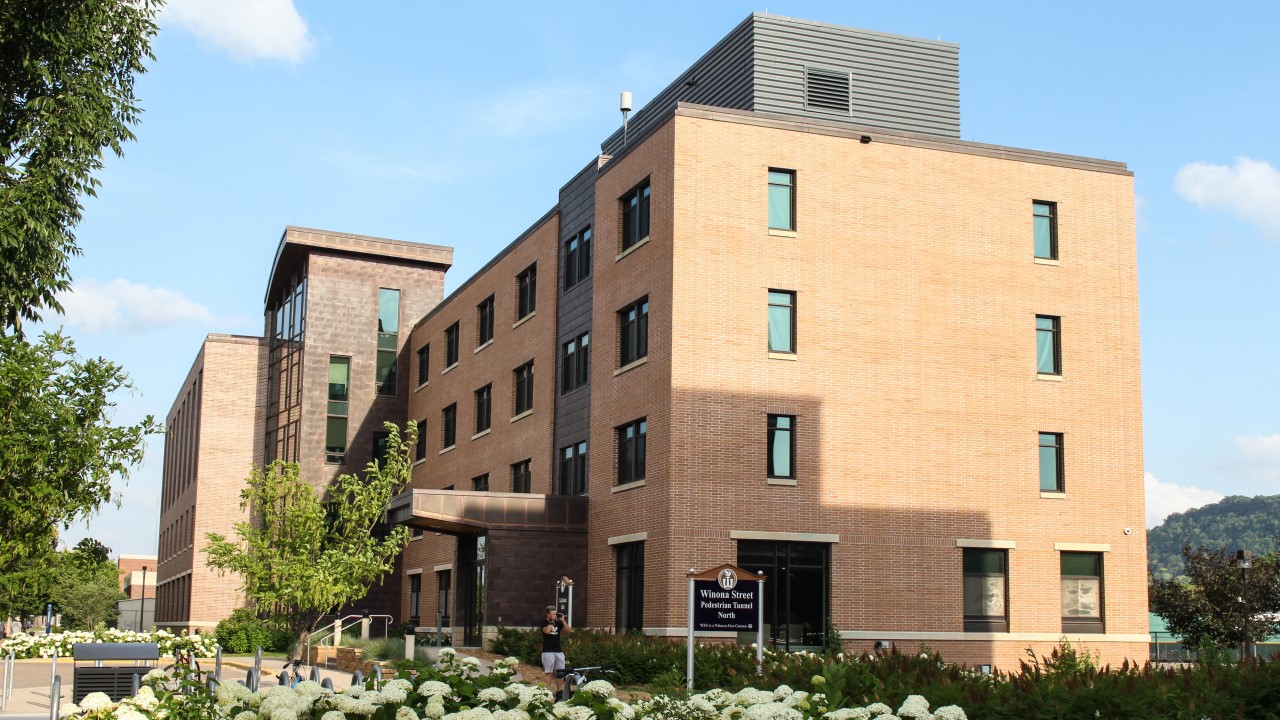Deciding if you want to live on campus for another year or move off campus has probably crossed your mind at least once or twice. And for new students, you may also be questioning which is the best option for you.
During my four years of living in the residence halls at WSU, I have heard residents talk about a handful of myths related to living on campus.
It is important to understand that not everything you hear from others is always true, so I’m going to debunk the three most popular on-campus housing myths.
Myth #1: “Living off campus is less expensive than living on campus.”
Not necessarily. When living on campus, you pay a flat fee each semester. This fee includes the cost of your room, which is furnished with a bed, mattress, desk and dresser, and some rooms even come with a bookshelf or nightstand.
The flat fee also includes:
- Laundry
- Cable
- WiFi
- Grounds workers
- Security
- Heating
- Air conditioning (in some residence halls, but not all)
If you live off campus, you need to pay for many of these items yourself, especially furniture, which all adds up!
Think about this, too: when living off campus, your costs are variable, which means they can come up at any moment. You will also have to cover any move-in fees and deal with bulky furniture you bought. And let’s not forget that on-campus housing provides move-in volunteers to assist you get settled into your residence hall—for free!
Your housing bill also includes your meal plan. Again, you can decide what you want to spend based on your individual needs. Meal plan options are seven, 10, 14, or 19 meals, which corresponds to the number of swipes you get per week in the cafeteria.
Each meal plan also includes a designated amount of Kryzsko Kash (AKA our on-campus currency) to spend in Zane’s, Caribou and Einstein Bagels, the Education Village Café and the Somsen Café.
Having access to the cafeteria will cut down your grocery bill you’d have if you lived off campus. While living off campus, you don’t have the luxury of someone cooking your meals for you, so you have to supply your food and cook meals yourself.
Overall, where you want to live and which meal plan is at your discretion when living on campus—you decide based on what you like and what you can personally afford.
Myth #2: “Resident Assistants (RAs) are super strict.”
As an RA myself, I can definitely say this is false. RAs are there for students to create a community on their floor, primarily through floor events and open-door hours.
Yes, while part of an RA’s job is to ensure residents are following policy and being safe, the part of our job we enjoy the most is creating relationships with our residents.
Your RA is a great resource to have, as they provide lots of free food and activities during the semester, and they help you connect with others living on your same floor.
RA’s work extremely hard to teach you skills that will help you succeed both as a student and as a person. You won’t have this same experience if you choose to live off campus.
Myth #3: “Only first-year students live on campus.”
At WSU, we have two halls that are dedicated for upperclassmen, Kirkland Hall and East Lake Apartments. Although upperclassmen students are allowed to stay in other traditional halls, it is nice living in a space with other upperclassman students.
I also know many upperclassmen who still live on campus. A lot of them rave about the convenience of being close to classes, as well as Kryzsko Commons, the library and other on-campus resources that aren’t as in reach for those living off campus.
At the end of the day, live where you want to live. Don’t base your decision on what’s expected or most popular.
After learning the truth behind these housing myths, you can now see that living on campus is fun, safe and lively.
The housing application is open for both new and returning students—get on it and make WSU your home!



